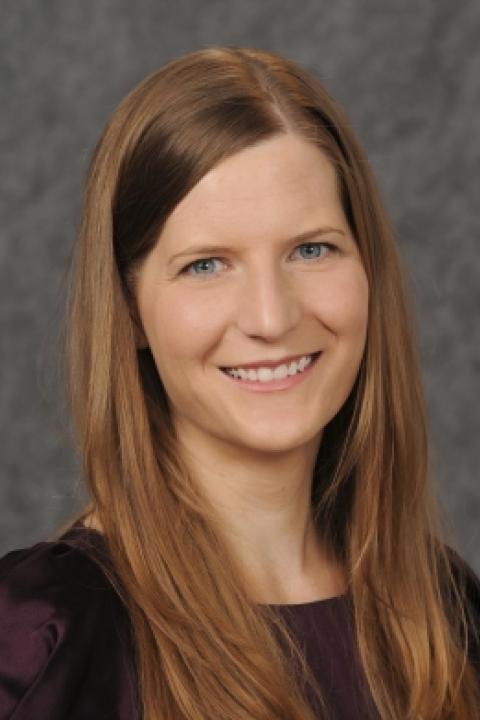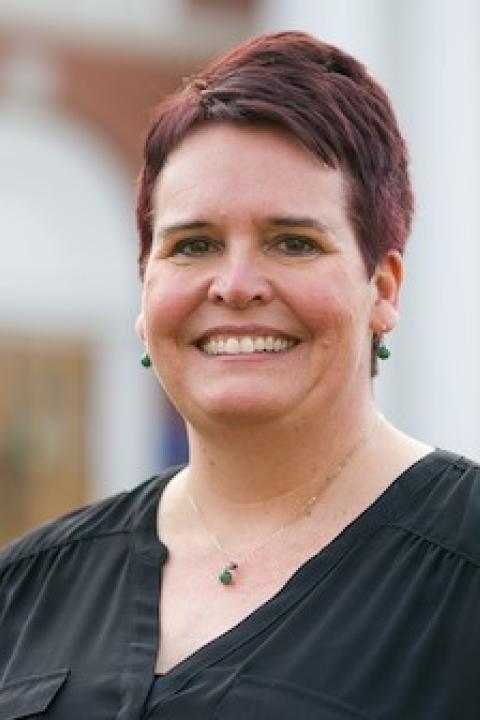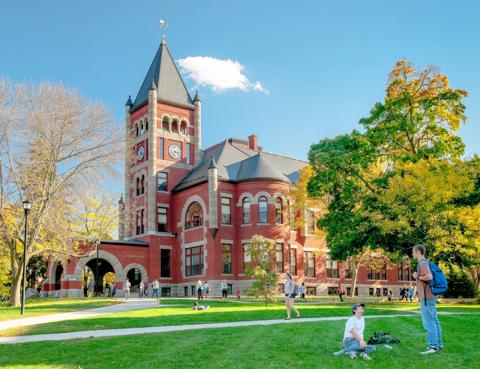WHY GET YOUR MASTER’S DEGREE IN HUMAN DEVELOPMENT AND FAMILY STUDIES?
The human development and family studies M.S.degree program will prepare you for work in a variety of human services settings, or for further study at the doctoral level. You’ll concentrate on child or adolescent development, combining your studies within-depth experience through a closely supervised teaching, research or advocacy practicum, as well as internship opportunities. Our program will help you contribute to the well-being of individuals and families through knowledge, teaching, leadership and professional practice.
WHY CHOOSE UNH’S HUMAN DEVELOPMENT AND FAMILY STUDIES PROGRAM?
The Human Development and Family Studies M.S. at UNH allows you to develop an individualized plan of study focused on your career goals. You’ll experience a collegial and supportive culture, with award-winning mentorship provided by nationally recognized faculty. We offer scholarship opportunities and competitive stipends, as well as access to our Preparing Future Faculty program. We also offer numerous opportunities for teaching and research through the Child Study and Development Center, the Marriage and Family Therapy Center and the Family Connections Center. Our program has a 100% placement rate, meaning our students are employed in their field or enrolled in further education within six months of graduating.
POTENTIAL CAREER AREAS
- Administration
- Community centers
- Education
- Guidance counseling
- Healthcare
- Human service organizations
- Marriage and family therapy
- Research
- Social work
From the CHHS Blog
Curriculum & Requirements
Beginning in the 2023-2024 academic year, the M.S. Human Development and Family Studies (Child/Adolescent Development) is pausing admissions to the program. Current students will continue to have access to the same high-quality education and resources until they graduate.
M.S. Degree: Core Areas of Study
The Core Areas of Study has two foci: Child Development and Adolescent Development. Students in the Core Areas of Study Program may elect one of two options to complete their master's degree: Thesis or Comprehensive Examination. Both programs prepare students to work in a variety of human service positions and enter doctoral programs. Please visit the Career Opportunities section of our website for more information.
Child Development: This core area of study is designed to develop an understanding of theory and research regarding children from infancy through the early school years and to prepare students to work in a variety of positions focused on children's family and school experiences. Students are expected to complete a practicum in a child-focused setting.
Adolescent Development: This core area of study is designed to develop general competence in understanding and applying theory and research regarding adolescence through early adulthood within the context of families and communities. Students are expected to complete a practicum in a program that serves adolescents.
Program Distinctions
- Collegial and supportive Culture
- Department scholarship opportunities available
- Award-winning mentorship from nationally-recognized faculty
- Many career options
- Individualized M.S. plan of study
- Option to work and conduct research at the department's Child Study and Development Center
- Exceptional placement rate post-graduation
- Opportunities to conduct research, publish, and present at conferences
- Practical experience gained through practicum
- Small class size
Why Core Area of Studies?
Graduates of Human Development and Family Studies, M.S. are positioned to:
- Innovative outreach efforts that extend knowledge to policymakers, employers, and professionals.
- Contribute to the well-being of individuals and families through knowledge, teaching, leadership, and professional practice.
- Apply to doctoral programs.
- Assume leadership positions in human service agencies, corporations and school.
CORE AREAS OF STUDY REQUIREMENTS
CHILD DEVELOPMENT
| Code | Title | Credits |
|---|---|---|
| Required Child Development Courses: | ||
| HDFS 911 | Graduate Internship | 4 - 8 |
| HDFS 930 | Play Therapy | 4 |
| HDFS 991 | Professional Issues for Family Specialists | 4 |
| HDFS 993 | Theoretical Approaches to Human Development and Family Studies | 4 |
| HDFS 994 | Research Seminar | 4 |
| Graduate-level stats class, options include: | ||
| EDUC 881 | Introduction to Statistics: Inquiry, Analysis, and Decision Making | 4 |
| or MATH 835 | Statistical Methods for Research | |
| or SOC 901 | Sociological Methods I: Intermediate Social Statistics | |
| or SW 962 | Data Analysis and Statistics | |
| Additional 10 elective credits selected with advisor from the following departmental courses or approved graduate courses in other departments 1 | ||
| HDFS 857 | Race, Class, Gender, and Families | 4 |
| HDFS 895 | Advanced Independent Study | 1-6 |
| HDFS 846 | Human Sexuality | 4 |
| HDFS 876 | Children, Adolescents and the Law | 4 |
| HDFS 894 | Families and the Law | 4 |
| Thesis or Comprehensive Examination: | ||
| Thesis Option 2 | ||
| HDFS 899 | Master's Thesis (Successful completion) | 6-10 |
or | ||
| Comprehensive Examination | ||
| Additional 8 credits of approved electives | ||
| Total credits required to graduate | 40-44 | |
- 1
Students will design a program of study from HDFS and other departments graduate courses
- 2
Students electing to complete a research thesis must write and defend a thesis based on original research. Students must earn a minimum of 6 credits of HDFS 899 Master's Thesis.
ADOLESCENT DEVELOPMENT
| Code | Title | Credits |
|---|---|---|
| Required Adolescent Development Courses | ||
| HDFS 876 | Children, Adolescents and the Law | 4 |
| Graduate-level stats class, options include: | ||
| EDUC 881 | Introduction to Statistics: Inquiry, Analysis, and Decision Making | 4 |
| or MATH 835 | Statistical Methods for Research | |
| or SOC 901 | Sociological Methods I: Intermediate Social Statistics | |
| or SW 962 | Data Analysis and Statistics | |
| HDFS 911 | Graduate Internship | 4 - 8 |
| HDFS 950 | 4 | |
| HDFS 991 | Professional Issues for Family Specialists | 4 |
| HDFS 993 | Theoretical Approaches to Human Development and Family Studies | 4 |
| HDFS 994 | Research Seminar | 4 |
| Additional 6 elective credits selected with advisor from the following departmental courses or approved graduate courses in other departments 1 | ||
| HDFS 857 | Race, Class, Gender, and Families | 4 |
| HDFS 895 | Advanced Independent Study | 1-6 |
| HDFS 846 | Human Sexuality | 4 |
| HDFS 876 | Children, Adolescents and the Law | 4 |
| HDFS 894 | Families and the Law | 4 |
| SW 814 | 3 | |
| SOC 897 | 4 | |
| Thesis or Comprehensive Examination | ||
| Thesis Option 2 | ||
| HDFS 899 | Master's Thesis (Successful completion) | 6-10 |
or | ||
| Comprehensive Examination | ||
| 8 Additional credits of approved electives | ||
| Total credits required to graduate | 40-44 | |
- 1
Students will design a program of study from HDFS and other departments graduate courses
- 2
Students electing to complete a research thesis must write and defend a thesis based on original research. Students must earn a minimum of 6 credits of HDFS 899 Master's Thesis.
Grade Policy
A graduate student who fails a course must immediately attend a mandatory meeting with the instructor of the course, the Human Development and Family Studies Graduate Coordinator, and, if desired, the student's adviser. If a graduate student receives grades below "B-" in two or more courses, the Human Development and Family Studies Graduate Coordinator will make a recommendation to the Graduate School that the student be dismissed from the program.
Program Learning Outcomes
- Students demonstrate a knowledge of the major models of marriage and family therapy and other systems related theories that support the MFT field students will acquire the clinical skills to assess and treat a wide range of problems from a systems paradigm demonstrate an understanding of multicultural diversity, larger systems and family/individual development across the lifespan develop ethical principles and practices in the field of marriage and family therapy develop systemic knowledge of marriage and family therapy research, striving toward a theoretically driven and research informed clinical practice.
Deadlines
Applications must be completed by the following deadlines in order to be reviewed for admission:
- Fall: Suspended program effective fall 2023
- Spring: Dec. 1 (for spring 2023 only; suspended effective fall 2023)
- Summer: N/A
- Special: N/A
Application fee: $65
Campus: Durham
New England Regional: MA VT
Accelerated Masters: Yes (for more details see the accelerated masters information page)
New Hampshire Residents
Students claiming in-state residency must also submit a Proof of Residence Form. This form is not required to complete your application, but you will need to submit it after you are offered admission, or you will not be able to register for classes.
Transcripts
If you attended UNH or Granite State College (GSC) after September 1, 1991, and have indicated so on your online application, we will retrieve your transcript internally; this includes UNH-Durham, UNH-Manchester, UNH Non-Degree work and GSC.
If you did not attend UNH, or attended prior to September 1, 1991, then you must upload a copy (PDF) of your transcript in the application form. International transcripts must be translated into English.
If admitted, you must then request an official transcript be sent directly to our office from the Registrar's Office of each college/university attended. We accept transcripts both electronically and in hard copy:
- Electronic Transcripts: Please have your institution send the transcript directly to grad.school@unh.edu. Please note that we can only accept copies sent directly from the institution.
- Paper Transcripts: Please send hard copies of transcripts to: UNH Graduate School, Thompson Hall- 105 Main Street, Durham, NH 03824. You may request transcripts be sent to us directly from the institution or you may send them yourself as long as they remain sealed in the original university envelope.
Transcripts from all previous post-secondary institutions must be submitted and applicants must disclose any previous academic or disciplinary sanctions that resulted in their temporary or permanent separation from a previous post-secondary institution. If it is found that previous academic or disciplinary separations were not disclosed, applicants may face denial and admitted students may face dismissal from their academic program.
Letters of recommendation: 3 required
Recommendation letters submitted by relatives or friends, as well as letters older than one year, will not be accepted.
Personal Statement/Essay Questions
Prepare a brief but careful statement regarding:
- Reasons you wish to do graduate work in this field, including your immediate and long-range objectives.
- Your specific research or professional interest and experiences in this field.
Additional Department Requirements
In addition to the regular graduate school requirements, a personal interview may be required.
Important Notes
All applicants are encouraged to contact programs directly to discuss program-specific application questions.
International Applicants
Prospective international students are required to submit TOEFL, IELTS, or equivalent examination scores. English Language Exams may be waived if English is your first language. If you wish to request a waiver, then please visit our Test Scores webpage for more information.
Explore Program Details
UNH juniors and seniors with a 3.2 GPA or higher now have the opportunity to apply for admission to the Accelerated Core Areas Program in either Child Development or Adolescent Development. Accepted students will begin the accelerated program in their senior year, and will be permitted to take up to 12 credits for dual credit. See the UNH Graduate School website for general information on accelerated master's programs.
Some of the Core Area courses are offered every other year, as a result, a student's course of study will vary based on the student's year of entry. For the spring of senior year:
- Child Development students could be taking HDFS 930: Child Development in Context plus up to 8 elective courses credits.
- Adolescent Development students could be taking HDFS 950: Contemporary Issues in Adolescent Development plus up to 8 elective courses credits.
- Child Development and Adolescent Development students could be taking up to 12 elective course credits and taking HDFS 930/HDFS 950 as a first year graduate student.
Deadline:
- Juniors: March 15th - start fall of senior year
- Seniors: October 15th - start spring of senior year
Contact

Barbara R. Frankel
Director, Marriage and Family Therapy Program and Center
Associate Professor, Graduate Coordinator
Email: barbara.frankel@unh.edu
The Department of Human Development and Family Studies at the University of New Hampshire offers a program of study leading to a master’s of science degree in HDFS with a Core Area of Study in Adolescent Development. This Core Area of Study is designed to develop general competence in understanding and applying theory and research regarding adolescent and emerging adult development with particular emphasis on the influences of families and communities.
- Study is grounded in an ecological approach that focuses on supporting the health and well-being of all adolescents and emerging adults with special attention to influential contexts, such as the family and school for physical and mental health.
- Students will use a developmental perspective to conduct research and may develop programs, policies, and other interventions that address contemporary risk and protective factors.
- Students will be expected to complete an internship with a program working with or for adolescents or emerging adults.
This program is intended for those who want expertise in adolescence and emerging adulthood, opportunities for leadership positions involving adolescents and emerging adults in community contexts, and to enter a doctoral program.
The Department of Human Development and Family Studies at the University of New Hampshire offers a program of study leading to a master of science degree in HDFS with a Core Area of Study in Child Development. Students also explore the ways in which a child's social, emotional, moral, and cognitive development is impacted by family, school and community.
- Grounded in an ecological and social constructivist framework for understanding the development of children from infancy through the early school years.
- Access to work and conduct research at CSDC, a laboratory school of 120 children age infant through Kindergarten, and the Family Connections Center, whose work strengthens the connection between incarcerated parents and their families while facilitating ties to the community through education and support.
- Students will be expected to develop a deep understanding of how the social construction of childhood has shaped and continues to shape parenting, schooling, and social policy.
- Students will be required to complete an internship in a child-focused setting.
This core area of study is intended for students with experience working with young children and their families and who desire opportunities to work in leadership roles with children in community contexts, including a variety of social service positions. In addition, professionals seeking to enter doctoral programs with a focus on research, leadership and practical applications can develop advanced knowledge and understanding of child development in context through this program of study.
- Collegial and Supportive Culture
- Competitive Stipends
- Scholarship opportunities from the University and Department
- Award-winning mentorship from nationally recognized faculty
- Many career options
- Individualized M.S. plan of study, to prepare you for the career you want
- Access to UNH’s Preparing Future Faculty (PFF) program
- Family Connections Center
- CSDC (work and conduct research - 120 children: Infant thru Kindergarten)
- Travel stipend available
- Exceptional placement rate post-graduation
- Open research teams
- Built-in-opportunities to conduct research, publish, and present at conferences
- Practical experience through internship
- The Department of Human Development and Family Studies contributes to the well-being of individuals and families through knowledge, teaching, leadership, and professional practice.
- Through connecting research, practice and policy our faculty and students conduct significant research on a range of issues facing children, adolescents, and emerging adults in today’s society.
- The department employs innovative outreach efforts that extend knowledge to policymakers, employers, and professionals.


















